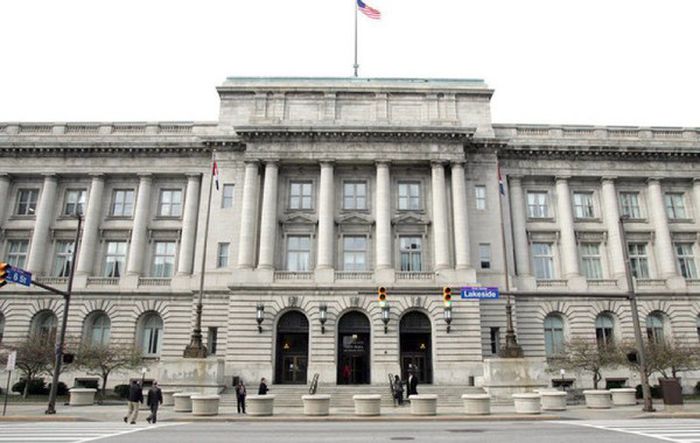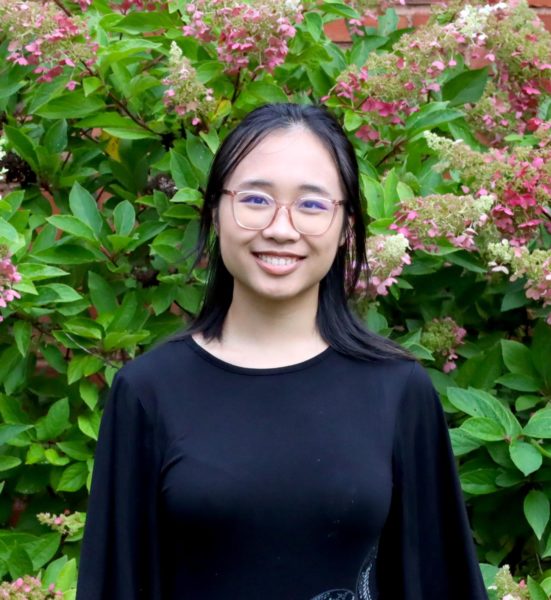EYEJ town hall and interviews of candidates in upcoming mayoral election
Cleveland City Hall is located in Cleveland’s Downtown neighborhood.
August 27, 2021
The Cleveland primary mayoral election is coming up on Sept. 14, with a result that will have major impacts on the city, and on Aug. 20, Empowering Youth, Exploring Justice (EYEJ) Youth Council and Millennial Task Force organized a town hall with an opportunity for Case Western Reserve University students to have a discussion with the candidates.
The event was from 4-6 p.m. EST, titled as the “2021 Town Hall: End the Digital Divide through the Power of Voting.” The invitation for the virtual event was sent out to the entirety of CWRU student body. The event features the candidates running in the mayoral election: Justin Bibb, Ross DiBello, Basheer Jones, Kevin Kelley, Dennis Kucinich, Zach Reed and Sandra Williams. The Q&A format allowed Carrington Hughes, Mallory Wilks and James Carter—all of whom are youths from the EYEJ Youth Council and Millennial Task Force—to have the opportunities to ask candidates questions relating to community issues.
The common theme for the interview session was “youths.” Throughout the interview, the interviewers as well as the candidates, focus on young people and the digital divide. The focus was on social media platforms, and “double, triple checking voter registration” to encourage young voters. Jones specified his focus on fixing how Cleveland “doesn’t prepare for young people.” The ultimate goal is to promote voting awareness, especially among students—a population that takes a large part of youths in our generation.
The Town Hall was a success, largely thanks to the organizers and their motivation to promote voter engagement among young people. Two of the organizers are from CWRU—University Media Board Chair Peter Chmiel and fourth-year Sriram Satyavolu— both of whom were responsible for sending out the event invitation to CWRU students. Chmiel emphasized the decision to choose the mayoral election instead of other local elections because the youths “wanted to meet with candidates before the primary for the main election and, ideally, before the voter registration deadline” in order to “reach a larger number of candidates, as well as emphasizing the issue of voter enfranchisement before the registration deadline.” In deciding alongside the special election in August, he added: “Because the primary deadline for the special election was more than a month earlier than the deadline for the mayoral election (Aug. 3 versus Sept. 14), we chose to instead focus on the mayoral election. However, because there is a large overlap in the voting body of the 11th District and the City of Cleveland, we still believe that our message was able to impact those most affected by the digital divide and voting issues in Cleveland.”
The Millennial Task Force (MTF) of the Youth Council consists mostly of members that are in their 20s or 30s, and therefore they could align closely with the mission of advocating for social justice and change by engaging with youth in Cleveland. However, with a shared mission, they are still able to contribute with diverse perspectives from different workplaces and colleges to further enhance their advocacy work. Chmiel also shared how he felt he could contribute from the perspective of a CWRU student: “as a [CWRU] student, one of the biggest campus issues I’ve come across has been the lack of connection between many of my fellow students and the rest of Cleveland, creating a one-mile “bubble” around University Circle. I have tried to face the problem by being an active community member in the Cleveland community, not just at [CWRU], which has included my work with EYEJ. This involvement with groups and nonprofits outside of [CWRU] student organizations has been a large part of my social and personal perspective through the years.”
Low voting rates among youths has always been a relevant issue. However, CWRU has the potential to make a change. Chmiel shared his advice for students who wish to advocate for voter engagement in the future: “In advocacy work, such as voter engagement, it often isn’t completely necessary to start an initiative from scratch. Cooperating with another group focused on similar work, such as CCEL on [CWRU]’s campus, can also be very effective. In our case, we had the wonderful opportunity to partner with the George Gund Foundation, Cleveland Votes, Northeast Ohio Voter Advocates and the League of Women Voters to work together on the town hall. If you are a student group and interested in helping the issue of voter engagement, a great first step would be to reach out to one of these groups.”
For voting resources specifically for the mayoral election, students can text “Vote” to 411 to gain information about online voter guides and voter candidates. In an effort to narrow the digital divide, printed flyers are also available at libraries, temples, retails, churches, etc. For additional information about anti-gerrymandering calling for active participation, students can also visit fairdistrictsohio.org.



